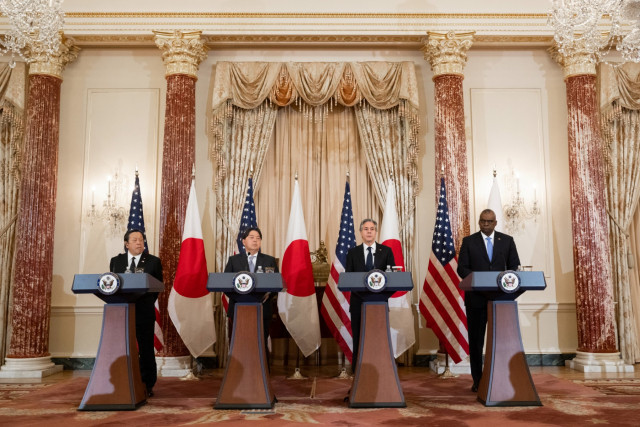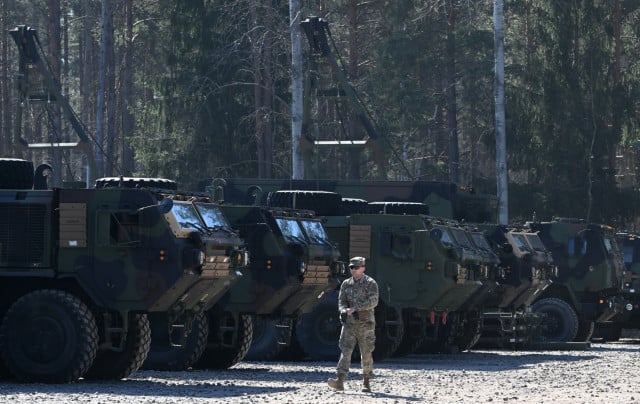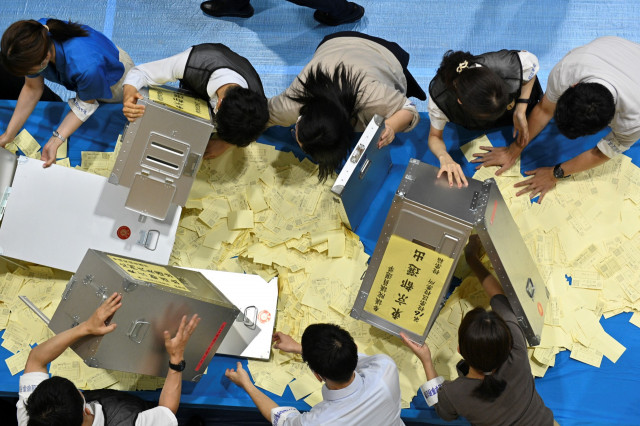US vows to defend space with Japan, deploy mobile Marines as China worries grow

- By Agence France-Presse (AFP)
- January 12, 2023 9:15 AM
Washington, United States -- The United States said Wednesday that attacks in space would invoke its defense treaty with Japan and announced the deployment of a more agile Marine unit in its ally as alarm grows over China.
Weeks after unveiling plans to ramp up defense spending, Japan sent its defense and foreign ministers to Washington for talks on updating the decades-old alliance.
They will be followed two days later by Prime Minister Fumio Kishida, who is touring Group of Seven nations to kick off Japan's leadership year of the elite club and earlier Wednesday signed a deal with Britain to increase defense ties.
"We agree that the PRC is the greatest shared strategic challenge that we, our allies and partners face," US Secretary of State Antony Blinken told a four-way news conference with the Japanese ministers, referring to the People's Republic of China.
His counterpart, Foreign Minister Yoshimasa Hayashi, said that the United States and Japan together have "a vision of a modernized alliance to acquire the posture to win in the new era of strategic competition."
As China makes rapid advances in satellites, Blinken said that the Washington and Tokyo agreed that attacks "to, from or within space" could invoke Article Five of their mutual defense treaty which considers an attack on one an attack on both.
The talks finalized a plan by the United States to send a so-called Marine Littoral Regiment, a more agile unit that can boost defenses both by sea and air, to Okinawa, the southern Japanese island strategically close to Taiwan.
US Defense Secretary Lloyd Austin said the unit would be in place by 2025 from a reorganization of an existing artillery regiment.
"I think this is going to contribute in a major way in our effort to help defend Japan and also promote a free and open Indo-Pacific," Austin said, using the US turn of phrase for an Asia without Chinese dominance.
- Taiwan risks but no 'imminent' invasion -
Okinawa, under US control until 1972, is home to more than half of the 50,000 US troops in Japan, whose leaders for decades have spoken of easing the burden on a local population often resentful of the bases.
Hayashi said that the Japanese government would keep working to address the concern of residents.
But Japan's calculus has shifted with the growing assertiveness of China under President Xi Jinping.
Kishida's government said last month that Japan would increase defense spending by 2027 to two percent of GDP, in line with a separate goal by NATO nations, whose security concerns have also spiked due to the Russian invasion of Ukraine.
The moves, which polling shows are largely backed by the public, mark the latest shift by Japan which has been officially pacifist since its defeat in World War II, when US occupiers constitutionally stripped the country of the right to wage war.
China claims Taiwan, a self-governing democracy, as part of its territory and last year carried out exercises seen as a test run for an invasion after a defiant visit to Taipei by Nancy Pelosi, then speaker of the US House of Representatives.
"I won't second-guess Mr. Xi but I what I will tell you that what we are seeing recently is some very provocative behavior on the part of China's forces," Austin said.
"We believe that they endeavor to establish a new normal but whether or not that means that an invasion is imminent, you know, I seriously doubt that," he said.
The United States also praised Japan's decision to build a "counterstrike capacity" -- being able to hit launch sites that threaten the country.
Tokyo over the past year has been alarmed by North Korea which has tested a slew of ballistic missiles, including some that have flown over Japan.
The Center for Strategic and International Studies recently released findings from wargames to chart out a Chinese invasion of Taiwan and found that Beijing would strike Japanese bases, inflicting heavy losses, although China would ultimately fail to take Taiwan.
© Agence France-Presse















